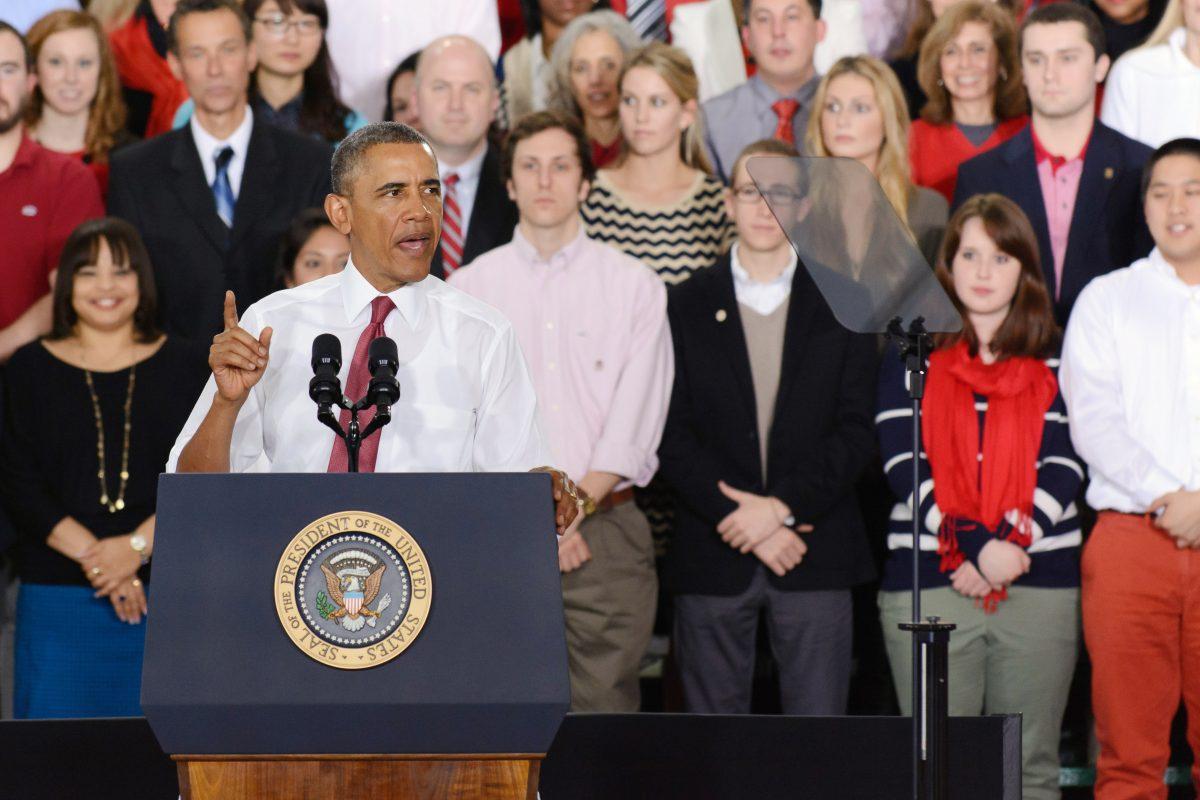President Barack Obama launched a $200 million, 5-year initiative called My Brother’s Keeper on Feb. 27 to try to reach and uplift young black men and other minorities within their communities, according to the New York Times.
Obama began his call to action because of underlying problems revealed in data concerning boys and young men of color. According to whitehouse.gov, 86 percent of African-American boys and 82 percent of Hispanic boys are reading below fourth-grade proficiency levels compared to 58 percent of white boys reading below fourth-grade proficiency levels.
African-American and Hispanic young men are more than six times as likely to be victims of murder than their white peers, and they account for almost half of the country’s murder victims each year, according to whitehouse.gov.
“That is something that needs to be addressed,” said Marshall Anthony, a senior in business administration and chair of the Afrikan-American Student Advisory Council.
There are many reasons why a student might read at a poor proficiency level, such as socioeconomic status, resources provided for schools, caliber of teachers, or home environment, Anthony said.
According to Anthony, Obama is entitled to address the issue of reading proficiency because it is closely related to the president’s own childhood and race.
Anthony said, though Obama is launching the new initiative, the president can’t do it alone and there has to be a hands-on effort from everybody.
“If we let young men of color fall by the wayside in school, then what options do they have coming out?” Anthony said.
Shelia Smith McKoy, director of the African American Cultural Center and a professor in Africana studies, said initiatives like My Brother’s Keeper will make it easier for students of color to access the assistance and support they need.
“I hope that N.C. State will take the challenge and interface with those in the community who are interested in My Brother’s Keeper and make the University a place where diversity is celebrated and show that in our graduation outcomes,” McKoy said.
According to McKoy, the problem with being a minority student at a predominantly white campus is the feeling of loneliness and not having support programs from the campus.
McKoy said she would love to see more programs on campus geared toward African-American females.
McKoy said it is good My Brother’s Keeper will expand outreach to African-American males, but that N.C. State, as well as the wider educational community, is not doing enough to provide support initiatives for minority students.
The importance of the initiative is to give back to the community by supporting young men early, before they even become high school seniors, Anthony said.
Anthony said the AASAC recently planned an inaugural community service initiative to take place in the beginning of May. Members will work as mentors at either the Boys and Girls Club or various middle schools to influence and inspire younger generations as a community effort.
Chancellor Randy Woodson has been involved with Obama’s initiative since his visit to the White House in January where he partnered with first lady Michelle Obama in targeting urban schools to help prepare students prior to college, according to Anthony.
Anthony said the program is a good start, but it still needs the guarantee of emotional support, finances, tutoring and time commitment in order to make an effective impact.
“The program should ensure that my brother does not fall by the wayside,” Anthony said. “As we are climbing on a collegiate standpoint, we have to ensure that we are lifting generations along the way.”
Anthony said he found it surprising that the fall 2013 acceptance rate of African-American students at N.C. State decreased to 20 percent, its lowest point since the 1980s.
ASSAC immediately created the African-American Acceptance Rate Action Team that partnered with Tracey Ray, the assistant vice provost for student diversity; the chancellor; the provost; and office of admissions in order to increase the acceptance rates, Anthony said.
Since ASSAC partnered with Ray, the acceptance rate has increased. According to Ray, the number of African-American freshmen admitted in December of 2013 is higher than the number reported in December of 2012.
ASSAC is planning to work with Ronnie Chalmers, assistant director of admissions, to plan diversity-embracing activities in April. Through diversity activities, Anthony said he is looking for ways to help the African-American community.
Anthony said My Brother’s Keeper is not only beneficial for the African-American community but that it will also help the economy thrive and improve the nation.
Anthony said people find it hard to relate to minorities because they haven’t had similar experiences, like the feeling of being the only African-American male in a class, and that they need to be guided in what the life of a minority is like in order for change to happen.








